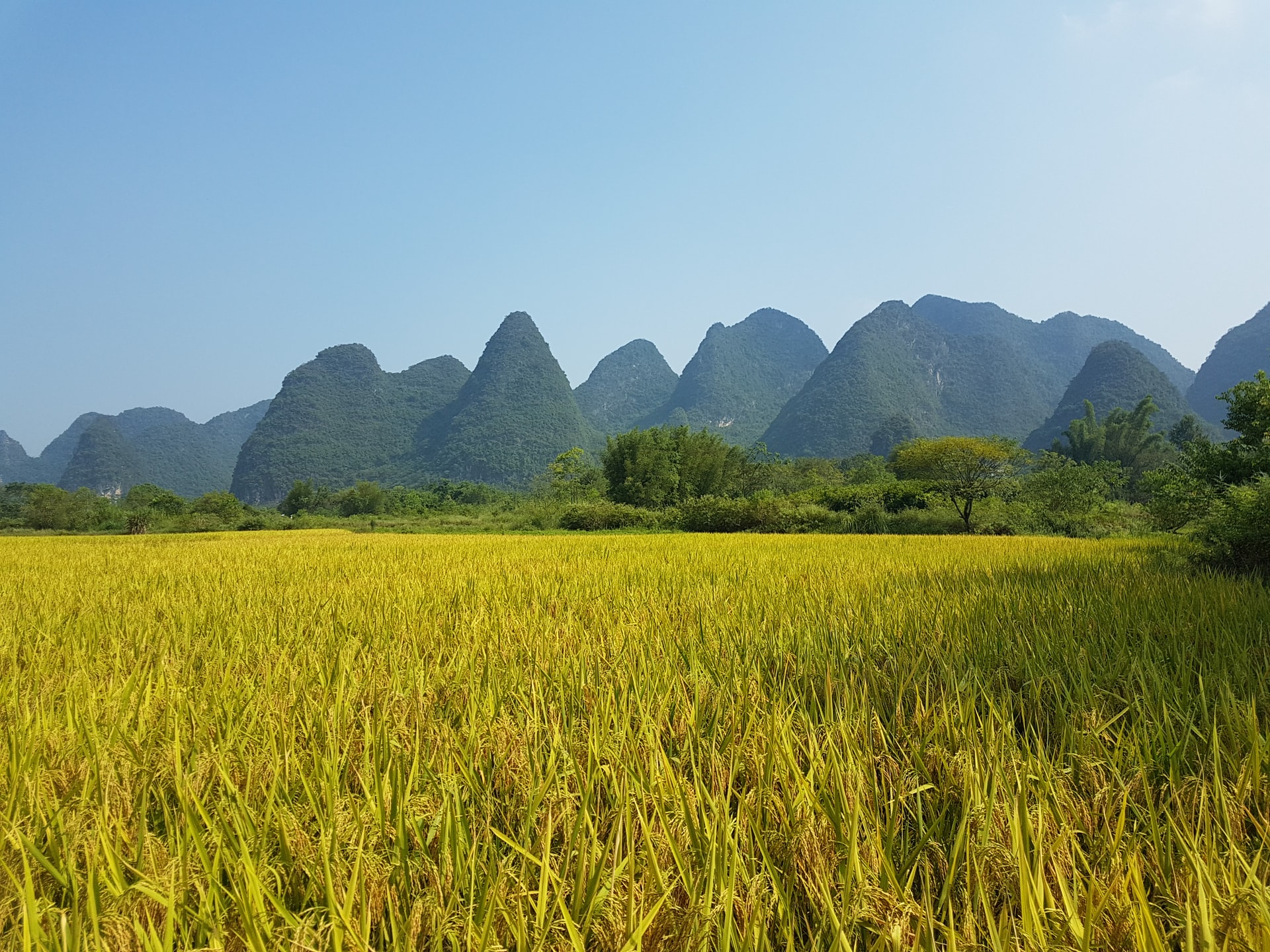
November 17, 2020, by Andrew Edwards (Ed)
Screening heat tolerance in rice plants – An interview with John Ferguson
Photo by marianne bos on Unsplash
John Ferguson is a postdoctoral research fellow on the Palaeobenchmarking Resilient Agricultural Systems (PalaeoRAS) project
Tell me about your work. What do you study?
I am plant ecophysiologist. I perform experiments to understand how plants respond to environment stress. We use the results from these experiments to link variation in the plant’s responses to genetic variation. This allows us to identify genes and plant varieties that can be exploited to develop new crop varieties that can deal with the challenges imposed by climate change.
How did you become interested in this field? How did you become interested in science?
I have always been broadly interested in how science and scientific principles can be employed to benefit humankind and promote sustainability. During an undergraduate program in Ecology, I worked on a project that examined how intra-specific variation in plants could be harnessed to stabilise performance during drought. From there, I became interested in plant genetics and sustainable agriculture.
Tell me a little about your research career?
I completed my PhD at the University of Essex with Uli Bechtold. We developed a novel screening methodology for forecasting water use in the model species, Arabidopsis. We used this to identify genetic variants that could be harnessed to improve water use efficiency.
I subsequently joined Andrew Leakey’s group at the University of Illinois at Urbana-Champaign, where I took natural variation– and transgenic-based approaches to improve the water use efficiency of sorghum.
What current projects are you working on?
I am currently a postdoctoral research fellow on the Palaeobenchmarking Resilient Agricutural Systems (PalaeoRAS) project. I am currently developing a platform for screening heat tolerance in plants. It is based on the principle of chlorophyll fluorescence (the light re-emitted by chlorophyll). We can use chlorophyll fluorescence to gauge the ’health’ of a plant, since this is related to how well it is photosynthesising. Photosynthesis is one of the first processes to be disturbed by environmental stresses, especially heat.
We are hoping this platform will allow us to screen hundreds of varieties of rice in a very short period of time, thereby allowing us to identify heat tolerant varieties. Additionally, we will correlate this variation in heat tolerance to genetic sequence variation to identify genes that control heat tolerance.
Is your research easily applicable in ordinary settings?
I think my research transcends the gap between basic and applied science. I can easily envisage our platform for screening heat tolerance being applied by a plant breeding company, for example.
Why Future Food? What would you like to accomplish while you’re here?
I was instantly attracted to the Future Food Beacon because of its emphasis on inter–disciplinary research and because of its ambitious goals concerning food and nutritional security. Whilst here, I will develop platforms for rapid screening of diverse germplasm in terms of heat tolerance. Subsequently, I hope to use these platforms to aid the development of novel climate-ready rice. Being integrated in the Food Beacon will allow me to realise these goals through access to key expertise, infrastructure and equipment.
Greatest career moment?
Getting the email to say that my first peer-reviewed scientific paper had been accepted for publication.
Advice for young scientists?
Remember to switch off after work. There are far too many people in academia who are over-dedicated to their research, to the detriment to their personal lives outside of work. It’s really hard, but so important, to achieve a positive work-life balance.
No comments yet, fill out a comment to be the first

Leave a Reply